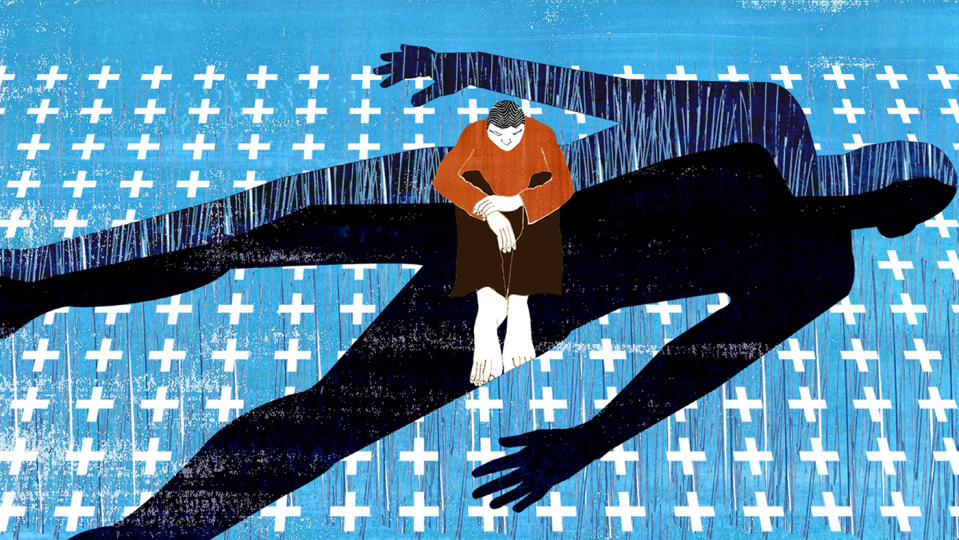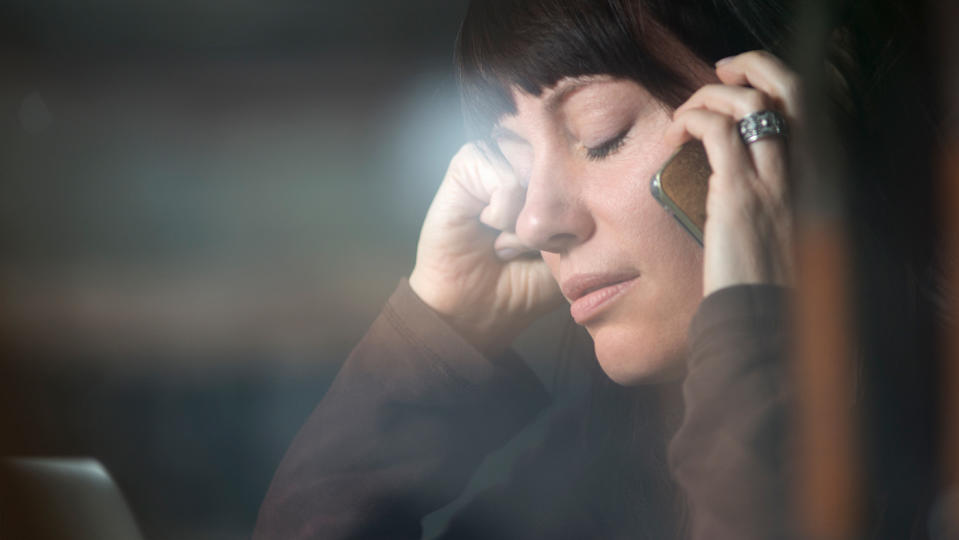Coronavirus: Pandemic funeral policies are creating a time-bomb of deferred grief

Anyone who loses a loved one during this pandemic faces the additional anguish of not being able to say goodbye in the way you wish.
Public Health England has published new guidelines to ensure funerals are conducted safely. These include restricting the number of mourners who attend to allow people to social distance. Only members of the deceased’s household can be present and anyone displaying symptoms can not be there.
“We are encouraging all mourners to practise social distancing at funerals for the time being,” says Professor Paul Cosford CB, the Medical Director for Public Health England. “This sadly means limiting the number of mourners to immediate households and closest family members.”
Unable to say goodbye
But restricted services mean a whole swathe of the population will be battling with delayed grief. “People always think funerals are a really sad place,” producer Terri Dwyer said on White Wine Question Time, recounting the loss of her parents. “But the wake after, I always found to be a really uplifting, wonderful experience, because you've got all these people in a room talking about the person that you've loved and lost.”
Dipti Tait, hypnotherapist and author of Good Grief, agrees that funerals are a definite need when it comes to dealing with loss.
“Funerals, for many of us, are a time to draw the line under the metaphorical sand of death,” she says.
“Even though we may not know everyone else at the funeral, they are a psychological collaboration of shared and united grief. This is very useful to help us process our grief in a way that is much more manageable.”
READ MORE: Terri Dwyer describes COVID-19 scare
A spokesperson for Dignity, one of the largest providers of funeral services in the UK, said there is still very much a need for people to be able to give their loved ones the best send-off they can at the moment.
They said: “We do know that it is important that people can give their loved ones a respectful funeral. Our view, therefore, is that we should do our utmost to give people the best funeral possible under the circumstances.
“Funerals do have to be smaller, but they can still be a respectful, peaceful opportunity for people to remember their loved ones, and there remains the opportunity to have a memorial or celebration of life service at a later date.”

Time to grieve
Someone who knows a lot about grief is author Stephanie Nimmo, who lost her husband and daughter within two years of each other. Her book Was This In The Plan? is her account of living through those difficult times.
The funerals of both her loved ones were, for her, an essential part of the grieving process and she believes not being able to attend the funeral of a loved one, especially when it’s an untimely death, can delay grief.
READ MORE: Recognising and dealing with grief is key to mental health during the pandemic
“There needs to be a transition between the person living and the person dying and the ritual of coming together with family and friends and mourning the person who has died,” she says.
“Saying a last goodbye is a way of moving from life to death and marking that person’s existence. Not being able to do that I wonder if you end up sort of stuck, not able to get closure?”
Dipti agrees that the lack of being able to come together to remember someone’s life can make mourners feel even more isolated.
“When we are denied this shared experience – especially in this unusual time of social and physical distancing – we can feel even more isolated and lonely,” she says.
“Our emotional radar is much more sensitive, and we can easily get overwhelmed and engulfed with the cocktail of emotions that we know to be described as grief.”
How to grieve during the pandemic
Dignity are already seeing some people decide to hold memorial services at a later date, enabling all family and friends to attend.
While she initially felt a little uncomfortable, Stephanie chose to live stream her daughter Daisy’s funeral. She said: “We felt the love of so many people all over the world that day.”
She also believes that great comfort can be found outside of the funeral, whether that’s holding your own memorial, or as she did, scattering the ashes.
READ MORE: 'I think I have COVID-19, when can I hug my family again?'
“We went back to Daisy’s school and scattered them in a garden and had a little ceremony” she says. “It felt very special and the final piece of saying goodbye to her.”

Terri believes it’s never too late to celebrate someone’s life, so a memorial once lockdown finishes can still be really healing. She lost her father 17 years ago, yet she still finds immense comfort in people sharing stories about him now.
She said: “I was at a funeral not so long ago and my dad's best friends were there, and again just hearing stories about those two… It just kind of carries me on that little bit further. I found that a great comfort.”
Dipti also says it’s important to understand that sharing our grief will be different during these unsettled times.
READ MORE: Three things the world needs to do to beat the coronavirus pandemic
“We have to learn to share our grief in a slightly different way at this unusual time,” she recommends.
“Asking for space, reaching out, asking for help and being kinder and much gentler and more compassionate with ourselves – so we still feel connected to others and then we will feel mentally supported.”
How to help others grieve
Of course, funerals are also a way of showing your support to those that have lost someone close, and with social distancing measures, there’s no way to be able to hug that loved one when they need it most – so what should you do?
Reach out to friends
Cruse Bereavement Care suggests reaching out to friends via a letter, text or email. They advise to ‘be honest’ and if appropriate share your thoughts about the person who died.
Stephanie agrees, saying that you just want to feel that someone out there cares and understands what you’re going through.

“The reality is that whether someone is there or not the grief will still feel the same, but to have it acknowledged and for someone to reach out and say ‘I see you’ is important. Sometimes, you just don’t want to talk, but a text or a message to say, I’m here is sometimes all that’s needed.”
Listen – and then listen some more
Some people may also want to talk in detail about the way that person died, and Cruse suggest being an ear for them at the end of the phone.
“They may want to talk about the person and tell you stories,” they advise on their website. “They may cry through these stories or just cry down the phone. Again, some people find this really hard to hear but just being there can be a great comfort.”
READ MORE: How to support a fiercely independent friend through grief
Show them they’re not alone
For Stephanie – who wrote Goodbye Daisy, a book to help young children who are grieving – messages and cards from loved ones were super important for her as it showed her that people cared and understood her loss.
“Little random acts of kindness were so important - someone leaving a gift of flowers and chocolates on my doorstep - meant that I was not alone,” she says.
Don’t offer advice
Grief is such a personal thing that no one person will experience it the same as another. While you may have some nuggets to share about what you went through, this is not your grief and it’s not about you.
Terri Dwyer talks more about dealing with grief, how she recovered from COVID-19 and why online learning is her new thing in the latest episode of White Wine Question Time. Listen now on iTunes and Spotify.

